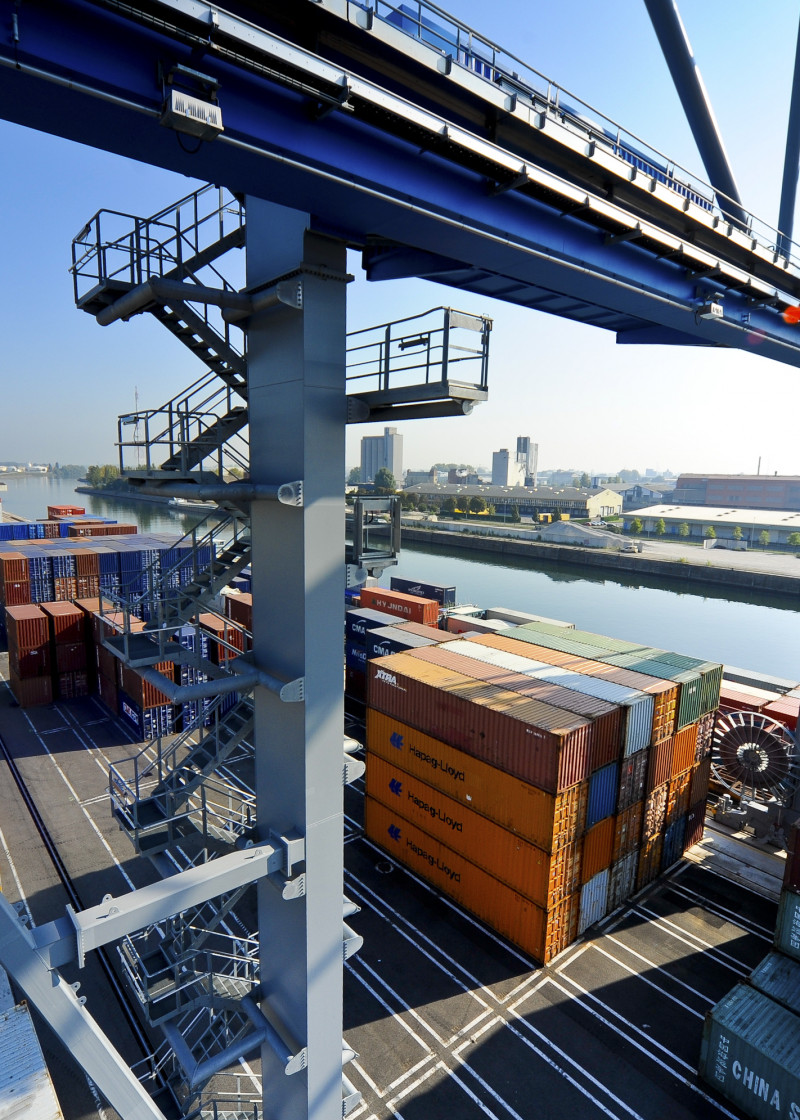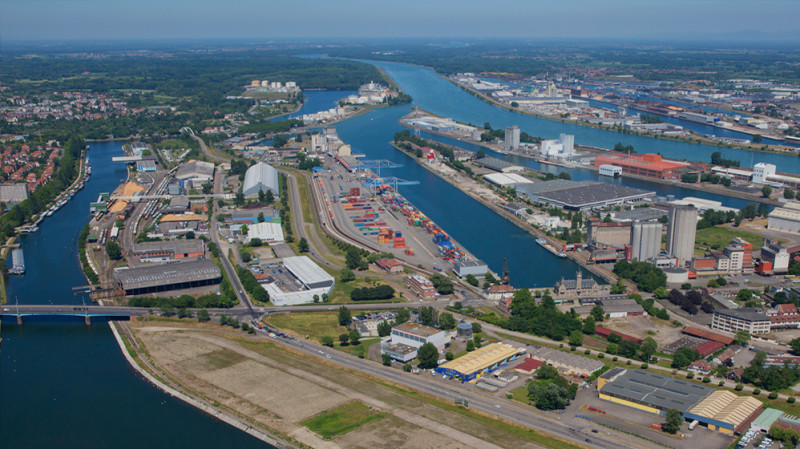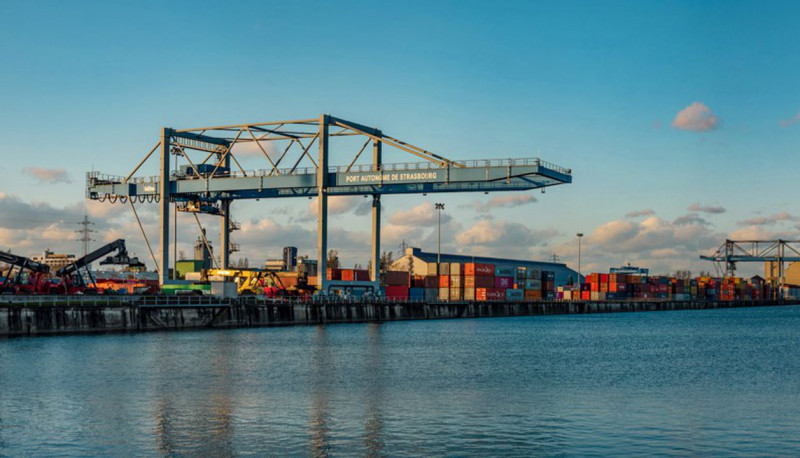The Industrial and Commercial Harbors of Strasbourg
The current location of the commercial and industrial harbour of Strasbourg dates from the late nineteenth century, as the municipality decided to remove it from the inner city and bring it closer to the Rhine. In reality, Strasbourg’s port facilities were first situated on the river Ill, in order to avoid the frequent flooding of the Rhine, whose course was not canalized before the nineteenth century. Located between Basel and Karlsruhe, Strasbourg is trying to assert a leading position among the other Rhine harbours and engaged a strong development policy at the beginning of the twentieth century. Today, the future development of these territories is a major challenge for the construction of the cross-border metropolis, due to harbours’ central location, as well as for the energy and ecological territorial transition, a central issue within local debates. Presented as the new “metropolitan belt”, the Strasbourg-Kehl urban development axis connecting together the French and German historical city-centers, highlights the interface between the city and the harbours areas. The international competition for the urban development of the customs sector in which we have participated as urban designers in 2012 is a very good illustration of these debates. In reality, the harbour sets new challenges related to industrial ecology, energy transition, environmental concerns, innovative mobility as well as contemporary urban condition and lifestyle, that are at the core of our professional practice (Atelier CMYT) and our action-research (AMUP-ENSAS research laboratory). This contribution aims to set, from a historical perspective, the socio-economical issues for the territorial development on both sides of the Rhine. We will refer to the new conceptual tools of the metropolitan scale - exploratory scenarios and Territorial Modelling and Visualizing Platform - that we explore through both our research programs and operational practice.






